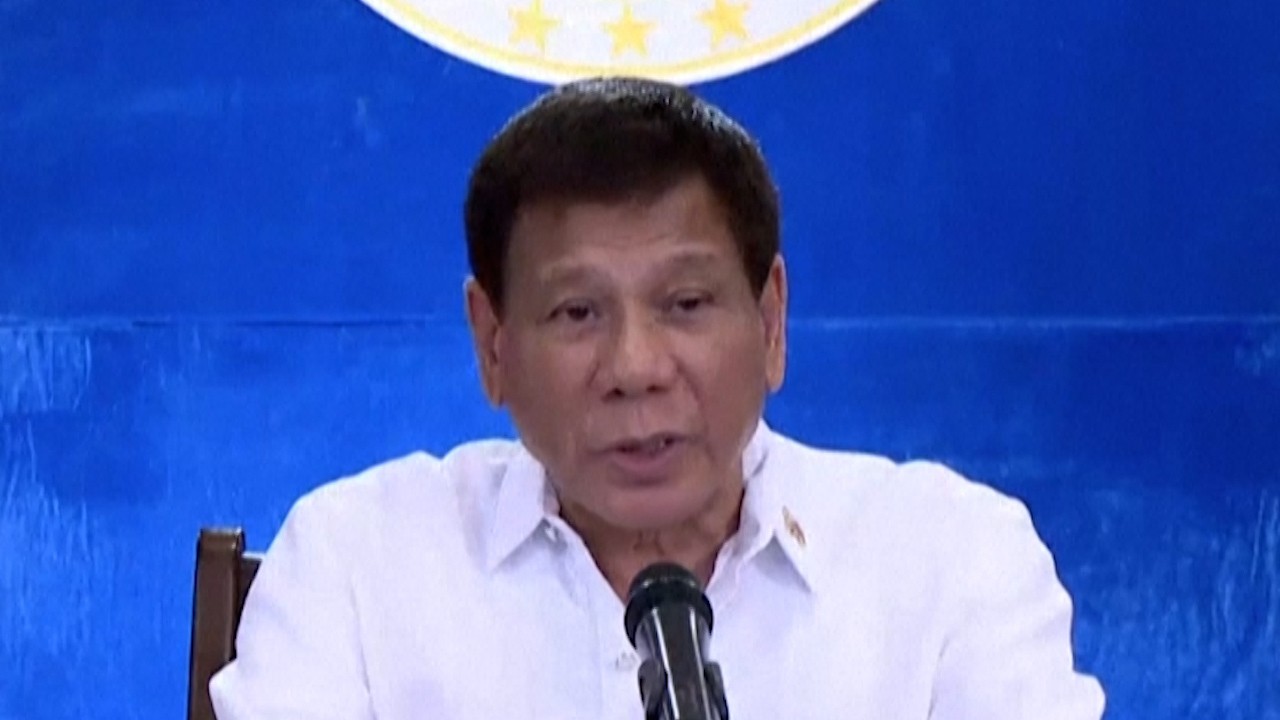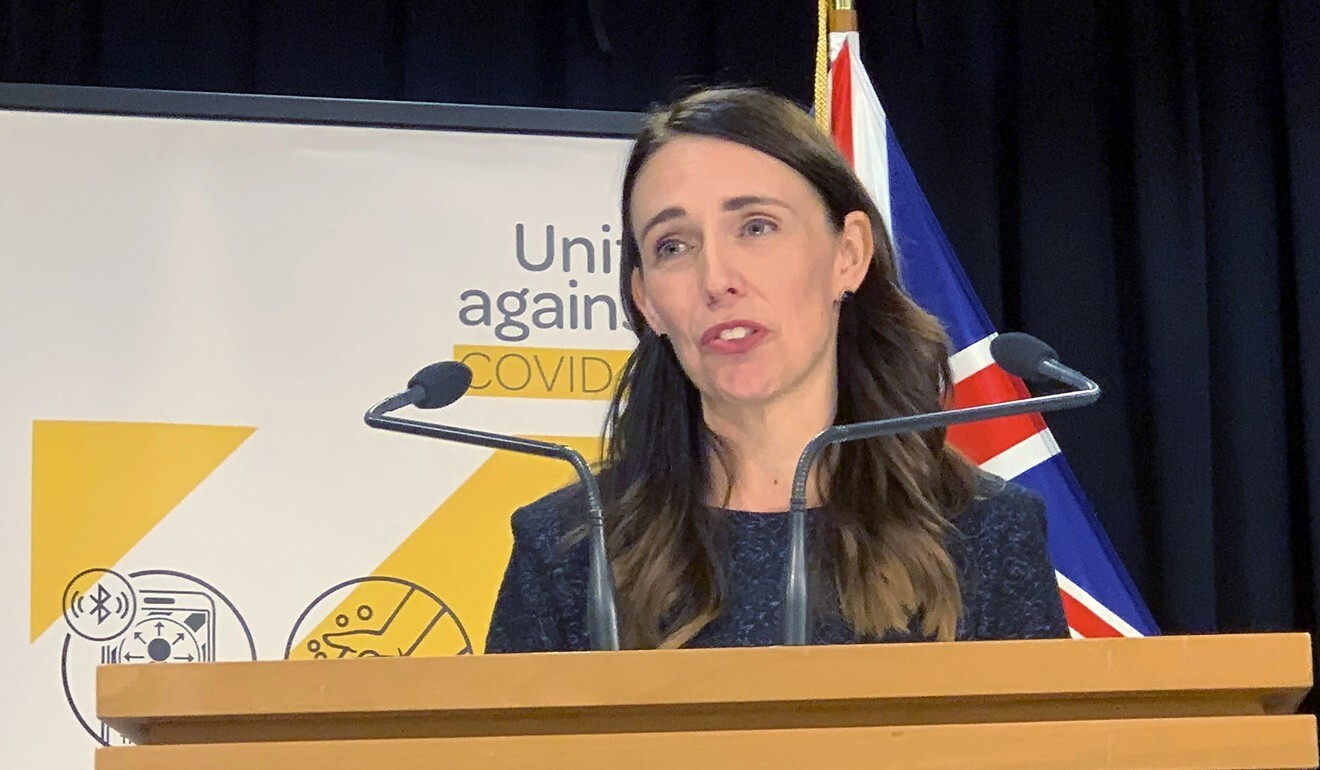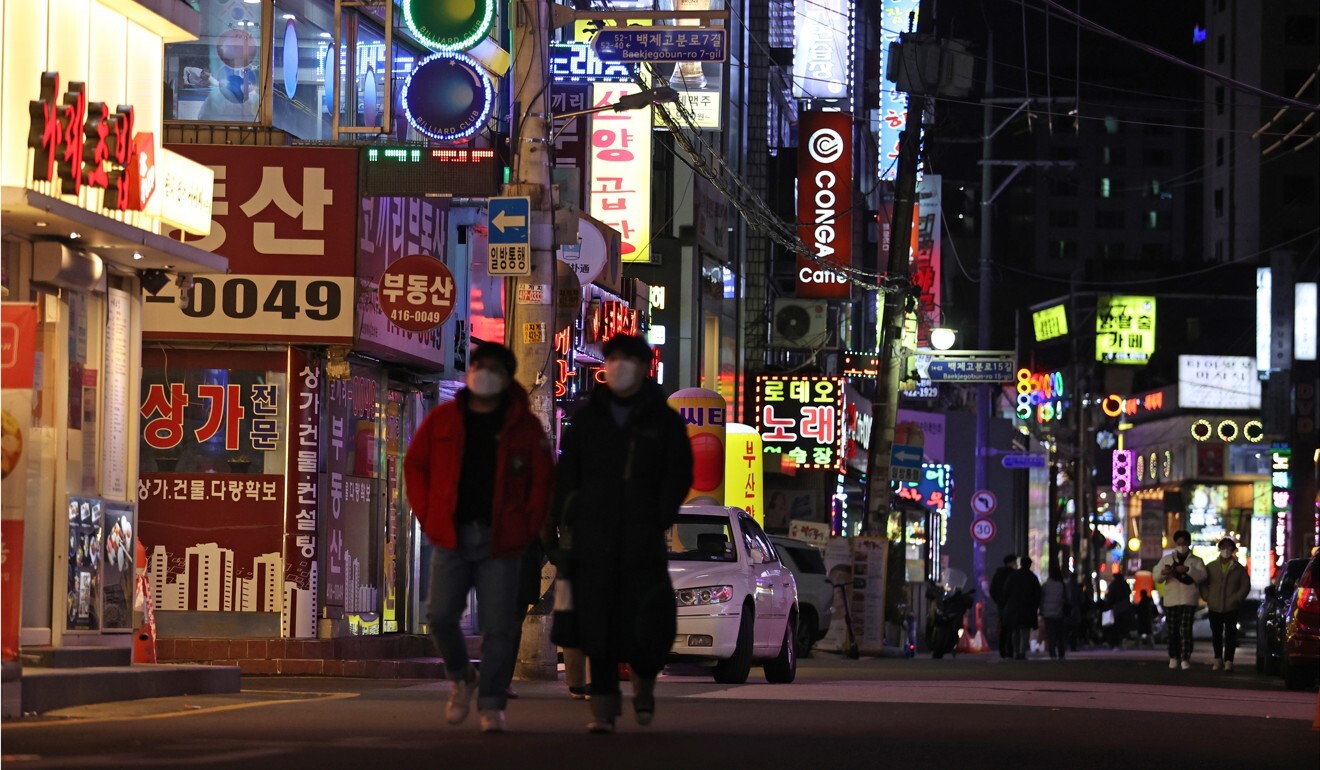
Coronavirus: Philippines’ Duterte to get vaccinated in public; no new cases in New Zealand
- The president’s decision is a bid to help allay safety concerns among Filipinos over getting inoculated with the Covid-19 vaccine
- Elsewhere, New Zealand saw no new cases, raising hopes Auckland’s lockdown will be lifted, and South Korea will buy more vaccines enough for 23 million people
Presidential spokesman Harry Roque said that Duterte had changed his mind about having it in public – but Roque did not confirm that Duterte would have the injection in his upper arm as has been usual practice with the coronavirus vaccines.
“The president has said that he will now have himself vaccinated publicly,” Roque said. “He only has to announce when it will be done.”
The government is aiming to vaccinate 50 million to 70 million Filipinos for free this year.
But a nationwide survey showed that 47 per cent of Filipinos refused to be inoculated with the Covid-19 vaccine, mainly due to concerns over its safety. Five per cent feel that a vaccine is not needed to combat Covid-19, the poll added.

01:01
Philippines’ Duterte tells children to stay home and watch TV as new coronavirus strain hits
In the capital region of Metro Manila alone, only 25 per cent of respondents are willing to get shots, while 28 per cent said they will not get the vaccine, the survey showed. Forty-seven per cent were undecided.
Roque said the government was encouraging high-ranking officials to get vaccinated to allay public concern over the shots.
“That is a policy we will now pursue,” he said. “We will do this to boost public confidence on vaccination.”
The Philippines’ Covid-19 caseload totalled 550,860 on Monday, with the Department of Health reporting 1,685 additional coronavirus infections. The death toll was at 11,517, it added.
No new cases in New Zealand
Just how three family members contracted the disease remains a mystery. After the cases were found, top lawmakers hurriedly placed New Zealand’s largest city into a three-day lockdown, the nation’s first in six months.
Covid-19 Response Minister Chris Hipkins said the final decision by lawmakers on whether to lift the restrictions will depend on any new information or cases that crop up over the next 24 hours. “A day when we get zero positive test results is always a good day,” Hipkins said.
Health officials have been ramping up testing since the outbreak. On Monday, they administered more than 15,000 tests and processed the results of nearly 6,000.
The outbreak began when an Auckland mother, father and daughter caught the disease. The mother works at a catering company that does laundry for airlines, and officials have been investigating whether there is any link to infected passengers.
Genome testing showed the family caught the more contagious variant first found in Britain. The testing was not able to link the cases to any previous known cases in New Zealand. The family’s close contacts, including people at the mother’s workplace and the daughter’s high school, have so far all returned negative tests, officials said.
New Zealand’s first batch of vaccine also arrived this week, a shipment of about 60,000 doses of the vaccine developed by Pfizer and BioNTech. Border workers will initially be prioritised, with inoculations due to begin on Saturday.

Syringe shortage hampers Japan’s roll-out
The government has made urgent requests, but manufacturers are struggling to ramp up production fast enough, creating the latest headache for Prime Minister Yoshihide Suga.
“We are still trying to secure these special syringes,” Chief Cabinet Secretary Katsunobu Kato said on Tuesday.
Japan, with a population of 126 million, last month signed a contract with Pfizer to procure 144 million doses of its vaccine, or enough for 72 million people. One vial is meant for six shots, Pfizer says, but it takes special syringes that retain a low volume of solution after an injection to extract six doses, while only five shots can be taken with standard syringes that the government has stored up in preparation for the inoculation drive.
Although daily cases have been in decline in recent weeks in Japan after peaking in early January, Tokyo and nine other prefectures are still under the coronavirus state of emergency. Japan has seen cases total around 418,000, with 7,042 deaths, according to public broadcaster NHK.

South Korea strikes new vaccine deals
But the vaccination programme is set to get off to a slower start, as some of the vaccines acquired have not yet proven sufficiently effective against new strains of Covid-19, while some manufacturers may not be able to deliver on time due to production problems.
To overcome those issues, South Korea has struck additional deals with Novavax for enough vaccines to cover 20 million people and with Pfizer to cover a further 3 million, Prime Minister Chung Sye-kyun said, making the total supply enough to cover 79 million people.
“The government has been working to bring in sufficient early supplies, but there is growing uncertainty over our plan for the first half due to production issues with global drug makers and international competition to adopt more vaccines,” he told a televised meeting.
South Korea aims to begin by inoculating health care workers and the elderly. But authorities said on Monday they would not use AstraZeneca vaccines on people aged 65 and older, reversing an earlier decision, because of insufficient efficacy data. Aside from AstraZeneca, South Korea has also reached agreements with Covax Facility, Pfizer/BioNTech, Moderna, and Johnson & Johnson for the supply of their vaccines.
The KDCA reported 457 additional coronavirus cases as of midnight on Monday, as the daily tally rebounds to the 400s in four days amid increased testing following last week’s Lunar New Year holiday. South Korea’s total infections rose to 84,325 with 1,534 deaths.
Australia approves AstraZeneca vaccine
The vaccine boost came as Australia’s second-most populous state neared the likely end of a five-day snap lockdown sparked by a fresh cluster of cases.
The federal government says it has ordered enough of the AstraZeneca vaccine, which will mostly be manufactured in Australia, to cover the country’s population of 25 million people. It has also ordered enough doses of a vaccine jointly developed by Pfizer and BioNTech, which is being manufactured offshore, for a fifth of the population.
“Australia now has two safe and effective Covid-19 vaccines available,” Prime Minister Scott Morrison said in a televised news conference.
The first batch of the Pfizer-BioNTech vaccine, which has a 95 per cent efficacy rate and has already been approved, arrived in Australia on Monday and authorities have planned the first inoculations for February 22.
Australia has reported a total of just under 29,000 Covid-19 cases and 909 deaths, with border closures and speedy tracking systems helping keep numbers relatively low compared with other developed countries.
North Korea ‘tried to hack Pfizer’: reports
Seoul’s National Intelligence Service “briefed us that North Korea tried to obtain technology involving the Covid vaccine and treatment by using cyberwarfare to hack into Pfizer”, MP Ha Tae-keung told reporters.
Reporting by DPA, Associated Press, Reuters, AFP
